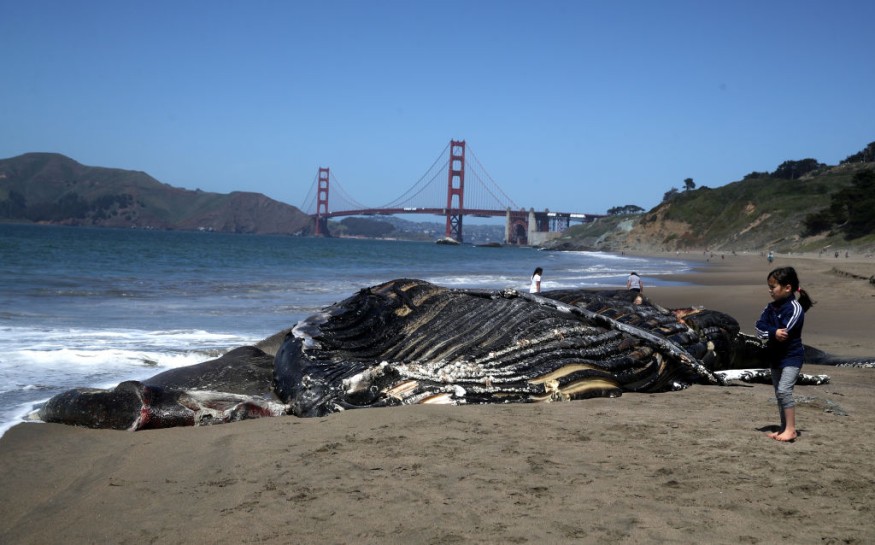Ship strikes are some of the main causes of anthropogenic deaths affecting whales and other marine animals in the United States, as well as in other parts of the world.
In recent years, whale strandings have been reported from the West Coast to East Coast. In addition to fishing net entanglements, the collision between marine mammals and vessels are a growing concern.
One of the latest cases of vessel strikes occurred in San Francisco Bay in California, near San Leandro Marina Park, where a dead juvenile gray whale washed ashore on April 7.
A necropsy or animal autopsy on April 8 conducted by scientists from the California Academy of Sciences, along with The Marine Mammal Center, reportedly concluded that giant marine mammal was killed by a ship strike.
San Francisco Bay Whale

A team of scientists identified signs of hemorrhage in the San Francisco Bay whale's soft tissue, primarily around its eye, lower jaw, and shoulder which showed evidence of blunt force trauma that was inflicted while the animal was still alive, according to a new released emailed by the California Academy of Sciences to Patch Media.
The media release also found severed tail flukes and propeller lacerations throughout the whale's body. These wounds are reportedly consistent with vessel collision. Furthermore, scientists also found a fishing line entangled on the whale's snout.
Two weeks prior to the incident, another dead gray whale was found along the Bolinas Beach in Marin County. The whale also sustained blunt force trauma and died caused by a vessel strike.
What is a Vessel Strike?
Vessel strike is a term used to describe the collision between "any type of boat" and a marine animal in the ocean, according to the National Oceanic and Atmospheric Administration Fisheries (NOAA Fisheries), which emphasized vessels can vary in sizes, ranging from large ships to jet skis. These vessels have the potential to collide with nearly all marine species.
The NOAA states most reported ship strikes on record involve large whales, seals, or sea lions, highlighting that strikes resulting in injury or death of the animals may go unnoticed by the vessel operator.
This is because the operator does not always see the ocean surface. There are instances wherein a marine animal is seen but there is not enough time for either to avoid an impending collision, the U.S. government agency adds.
Unusual Mortality Event
NOAA researchers reported that the gray whale species has lost almost 40% of its population since 2019, as cited by Patch Media.
Under such circumstances, the elevated gray whale strandings along North America's west coast from Mexico through Alaska has prompted the NOAA Fisheries to declare the event since January 1 of 2019 as an Unusual Mortality Event (UME).
Previous investigations, including full or partial necropsy examinations, of gray whale strandings have shown evidence of emaciation, which is a state of being abnormally thin or weak, the government agency reported.
© 2026 NatureWorldNews.com All rights reserved. Do not reproduce without permission.





